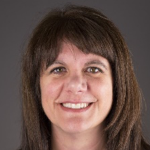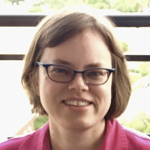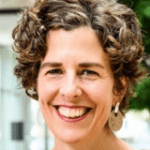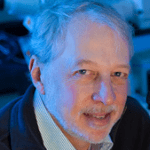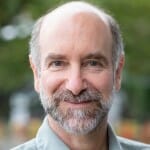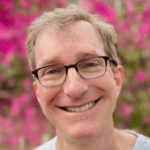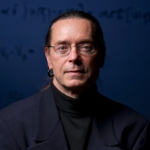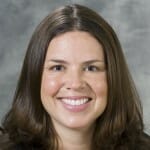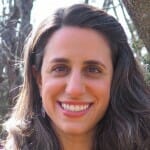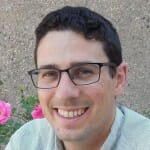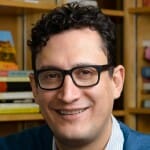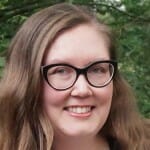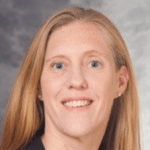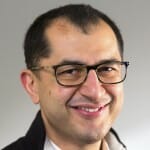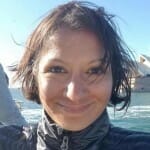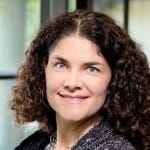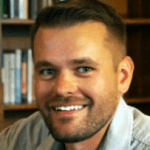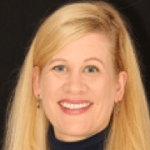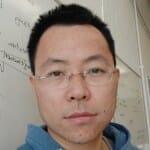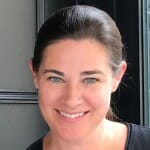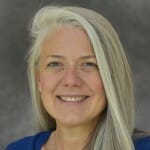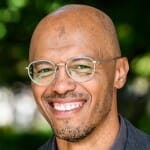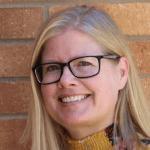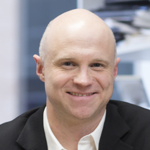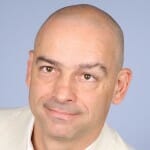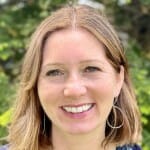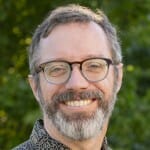Faculty receive WARF Named Professorships, Kellett Fellowships, and Romnes Awards
Thirty-three members of the University of Wisconsin–Madison faculty have been awarded fellowships for 2021-22. The awardees span the four divisions on campus: arts and humanities, physical sciences, social sciences and biological sciences.
“Each year we recognize faculty members at various stages in their careers, who excel in their research areas,” says Steve Ackerman, vice chancellor for research and graduate education. “This year’s awardees are talented individuals who have shown extraordinary originality and dedication during the pandemic. Each has established an exemplary record of research and scholarly activity that has advanced the university’s research mission.”
The awards are made possible because of the research efforts of UW–Madison faculty and staff. Technology that arises from these efforts is licensed by the Wisconsin Alumni Research Foundation and the income from successful licenses is returned to the Office of the Vice Chancellor for Research and Graduate Education, where it’s used to fund research activities throughout the divisions on campus, including these awards.
Eight faculty are appointed to WARF Named Professorships. The awards, which come with $100,000, honor faculty who have made major contributions to the advancement of knowledge, primarily through their research endeavors, but also as a result of their teaching and service activities. Award recipients choose the names associated with their professorships.
Fourteen faculty have received H.I. Romnes Faculty Fellowships, recognizing faculty within their first six years from promotion to a tenured position. The award is named in recognition of the late WARF trustees president H.I. Romnes and comes with $60,000 that may be spent over five years.
Eleven faculty have been honored with Kellett Mid-Career Awards to support those who are seven to 20 years past their first promotion to a tenured position. The award was created to provide support and encouragement to faculty at a critical stage of their careers. The honor, named for the late William R. Kellett, a former president of the WARF board of trustees and president of Kimberly-Clark Corporation, comes with $75,000 that may be spent over five years.
WARF NAMED PROFESSORSHIPS
Andrea Arpaci-Dusseau, Susan Beth Horwitz Professor of Computer Sciences, studies computer systems. Her research focuses on graybox systems, including introspective virtual machine monitors and semantically smart disks; performance analysis, isolation, and optimizations for storage systems; and failure handling in storage systems, including crash consistency and robust distributed storage.
Amy Barger, Henrietta Leavitt Professor of Astronomy, has made pioneering discoveries of distant galaxies and supermassive black holes, and her research has upset the prevailing paradigms of how galaxies and supermassive black holes evolve over cosmic time. She continues her search and study of the earliest such systems in the universe.
Amy Quan Barry, Lorraine Hansberry Professor of English, is the author of six books of fiction and poetry, including the 2021 novel We Ride Upon Sticks. Her first play, The Mytilenian Debate, will be staged in February 2022 by Forward Theater. Barry has directed both the Wisconsin Institute of Creative Writing and the English Department’s MFA program. In 2012, she was commissioned to write a 10-minute piece for Book Wings, an arts exchange established by President Obama and Russian President Dmitry Medvedev.
Katherine Cramer, Virginia Sapiro Professor of Political Science, studies the way people in the United States make sense of politics, their connections to each other and to their governments. She is known for her innovative approach to the study of public opinion, in which she uses methods such as inviting herself into the conversations of groups of people to listen to the way they understand public affairs. Her award-winning book, The Politics of Resentment: Rural Consciousness in Wisconsin and the Rise of Scott Walker (Chicago 2016), has been a go-to resource for understanding the rural vs. urban divide in the United States and around the globe.
Paul Lambert, Roswell K. Boutwell Professor of Oncology, is Chair of Oncology and Director of the McArdle Laboratory for Cancer Research at the University of Wisconsin School of Medicine and Public Health. Lambert’s laboratory studies the pathogenesis of human papillomaviruses that are associated with about 5% of human cancer. His lab has defined the roles of viral and host factors in these cancers, identified new therapeutic targets, and defined the mechanism by which these human tumor viruses evade the host immune system. They have also defined the roles of multiple viral genes in the viral life cycle.
Jonathan Patz, the John P Holton Chair of Health and the Environment, holds appointments in the Nelson Institute for Environmental Studies and the Department of Population Health Sciences. In 2011 he was appointed the inaugural director of the Global Health Institute. His career has focused on the human health effects of climate change and ecological degradation. With this WARF award Patz becomes the Tony J. McMichael Professor of Planetary Health.
Larry Shapiro, Berent Enç Professor of Philosophy, studies issues in cognitive science. He has been critical of the philosophical orthodoxy according to which human-like cognition can exist in nonhuman organisms or artificial intelligences. Human-like thought, he has argued, requires a human-like brain. He has also been a leading expositor of embodied cognition, a psychological research program that emphasizes the importance of the body in thought. Apart from his interests in cognitive science, he has written a book in which he argues that belief in miracles is irrational. In his most recent book, co-authored with UW–Madison Professor of Philosophy Steven Nadler, he diagnoses and offers remedies to the sorts of bad thinking that underlie belief in conspiracy theories.
Randall Wright, Kenneth Burdett Professor of Finance, holds appointments in the departments of Finance and Economics. Wright is known for his research on monetary, macro and labor economics, with over 100 publications. His theoretical work in monetary economics changed the field dramatically. He has been a consultant for several Federal Reserve Banks, and the Bank of Canada.
H.I. ROMNES FACULTY FELLOWSHIPS
Michelle Ciucci, associate professor of communication sciences and disorders, is an accomplished, NIH-funded neuroscientist who studies communication and swallowing in neurodegenerative disease. Her work has facilitated early diagnosis and advanced treatment options that improve the health and quality of life for those with Parkinson’s disease. She excels at teaching, is a devoted mentor, and is dedicated to service and outreach.
Michal Engelman is associate professor of sociology, training director at the Center for Demography of Health and Aging, and principal investigator for the Wisconsin Longitudinal Study. Her work examines the early and mid-life experiences that shape well-being in later life and the impact of racial, socioeconomic and geographic stratification on inequities in longevity and health.
Daniel Erman, associate professor of mathematics, studies algebraic geometry and commutative algebra. He is particularly interested in the study of syzygies under various asymptotic constructions, and in the study of algebraic geometry over finite fields. He is a past winner of the William H. Kiekhofer Teaching Award and has distinguished himself in courses ranging from first-year calculus to graduate topics.
Pablo F. Gómez, associate professor of history and the history of medicine, is interested in histories of knowledge-making and health and corporeality with a particular focus on Latin America, the Caribbean, and the African diaspora. Gómez is working on a history of the quantifiable body emerging in slave trading circuits in the 16th and 17th centuries. He is also collaborating on several projects related to legal history and global histories of science and medicine.
Jenell Johnson is an associate professor of communication arts, where she teaches courses on the rhetoric of science, health and the environment, and disability studies. Her research explores the circulation of scientific and medical information in the public sphere, with an emphasis on the social, ethical and political aspects of nonexpert engagement.
Kristen Malecki, associate professor of population health sciences, is director of the Survey of the Health of Wisconsin (SHOW). An ongoing longitudinal study and infrastructure, SHOW supports community-based and engaged population health sciences research. Her current research uses a multi-omic approach to examine combined chemical (air and water) pollution, physical and social stressors, and their influence on adult chronic disease, aging and health disparities.
Bilge Mutlu is an associate professor of computer sciences and the director of the People and Robots Laboratory. His research in human-robot interaction has received numerous paper awards and coverage in international press. His interdisciplinary background combines design, computer science and psychology with a PhD in human-computer interaction from Carnegie Mellon University.
Nandini Pandey, associate professor of classics, is author of The Poetics of Power in Augustan Rome (Cambridge 2018). Her second book project, on Roman diversity, has won fellowships from the ACLS, the American Academy in Berlin, and UW’s Institute for Research in the Humanities.
Linn Posey-Maddox is an associate professor of educational policy studies. Her research and teaching focus on urban and suburban education; education and urban policy; and family-school relationships. Posey-Maddox is the author of When Middle-Class Parents Choose Urban Schools: Class, Race, and the Challenge of Equity in Public Education (Chicago 2014).
Robert Roth, associate professor of geography and faculty director of the UW Cartography Lab, researches and teaches interactive, online and mobile map design. Roth received an NSF CAREER award and serves as editor of Cartography & Visualization in the GIScience Body of Knowledge.
Jennifer Schomaker, professor of chemistry, studies design and applications of asymmetric catalysts, methods for forming carbon-nitrogen bonds in bioactive molecules and developing reagents for biorthogonal labeling. She serves as editor for Organic Reactions and associate editor for Organic Chemistry Frontiers.
Johannes Wallmann, associate professor of music, is the inaugural holder of the John and Carolyn Peterson Chair in Jazz Studies, an Emily Mead Baldwin award recipient, and a Yamaha Piano Artist. He has recorded nine critically acclaimed CDs. DownBeat magazine called Wallmann “a remarkable pianist and composer” and praised his album Day and Night as “confident, muscular and elegant.” The Wisconsin Gazette extolled his album Love Wins as “one of the most interesting and accomplished jazz albums to come out in recent years.”
Zongfu Yu, associate professor of electrical and computer engineering, studies photonics, with applications in computing, sensing, energy and sustainability. He is a fellow of the Optical Society (OSA). He has been elected as a Clarivate Highly Cited Researcher in the past three years.
Xuehua Zhong, associate professor of genetics and an affiliate with the Wisconsin Institute for Discovery, studies epigenetic regulation of plant traits and environmental adaptation. By understanding how plants reprogram epigenetic landscapes to meet growth and survival needs, she is developing innovative tools to edit and engineer epigenomes for biomass production and agricultural improvement. Zhong teaches epigenetics and advanced genetics.
KELLETT MID-CAREER AWARDS
Marcy Carlson, professor of sociology, studies the associations between family contexts and the well-being of parents and children. She has explored the changing composition of families and aspects of their functioning. Carlson is the director of the Center for Demography and Ecology.
Marina Emborg, professor of medical physics, directs the Preclinical Parkinson’s Research Program at the Wisconsin National Primate Research Center. Her innovative and comprehensive research approach is changing how Parkinson’s disease and related disorders are conceptualized and modeled and how new therapies are delivered and tested.
Claudio Gratton, professor of entomology, studies landscape ecology and conservation of arthropods in agricultural landscapes, and examines how intensification of agriculture influences the abundance, diversity and benefits that insect predators and pollinators provide to people.
George Willis Huber, professor of chemical engineering, studies the design of disruptive technologies for the conversion of biomass, waste plastics and other waste resources into renewable fuels and chemicals. He is the director of the $12.5 million U.S. Department of Energy Center on Chemical Upcycling of Waste Plastics (CUWP), funded in 2021.
Amaud Jamaul Johnson, professor of English and director of the MFA Program in creative writing, is the author of three poetry collections, Red Summer, Darktown Follies, and Imperial Liquor, which was named a finalist for the 2021 UNT Rilke Prize and The National Book Critics Circle Award.
Megan Moreno, professor of pediatrics and adjunct professor of educational psychology, is the vice chair of academic affairs and division chief for General Pediatrics and Adolescent Medicine. Her research team, the Social Media and Adolescent Health Research Team (SMAHRT), focuses on the intersection of technology and adolescent health.
William L. Murphy, professor of biomedical engineering and orthopedics and rehabilitation, is director of the Forward BIO Institute. He has invented and developed multiple new types of biomimetic materials, which are materials inspired by nature. Murphy’s research group has used new materials to manufacture medical devices, human cells and human tissues. These products are now being used to discover and deliver new medical treatments.
Guilherme Rosa, professor of animal and dairy sciences, works on data analytics for improved efficiency and sustainability of livestock systems. Current projects include computer vision techniques for precision livestock farming, use of genomic information for genetic improvement of herds, and predictive modeling and causal reasoning using experimental and observational farm data.
David Williamson Shaffer, professor of learning sciences and a data philosopher at the Wisconsin Center for Education Research, studies the unification of qualitative and quantitative research methods. Shaffer is the faculty director of UW’s Masters in Learning Analytics program, a former Marie Curie Fellow, and a founding member of the International Society for Quantitative Ethnography.
Jessica Weeks, professor of political science and H. Douglas Weaver Chair in Diplomacy and International Relations, studies the domestic politics of foreign policy in both democracies and dictatorships. In 2018, Weeks received the International Studies Association’s Karl Deutsch Award, which recognizes the scholar under 40 who has made the most significant contribution to the study of international relations.
John (Jack) Williams, professor of geography, is a paleoecologist, biogeographer and earth system scientist who studies ecological and climate dynamics during the last deglaciation as a model system for the large, rapid and novel environmental changes that are currently underway. His work ranges from coring lakes in the Upper Midwest to building and analyzing global biodiversity data resources. He is executive chair of the Neotoma Paleoecology Database, which serves global change research and education by providing a high-quality, expert-curated data resource for paleoecological and paleoenvironmental data.

